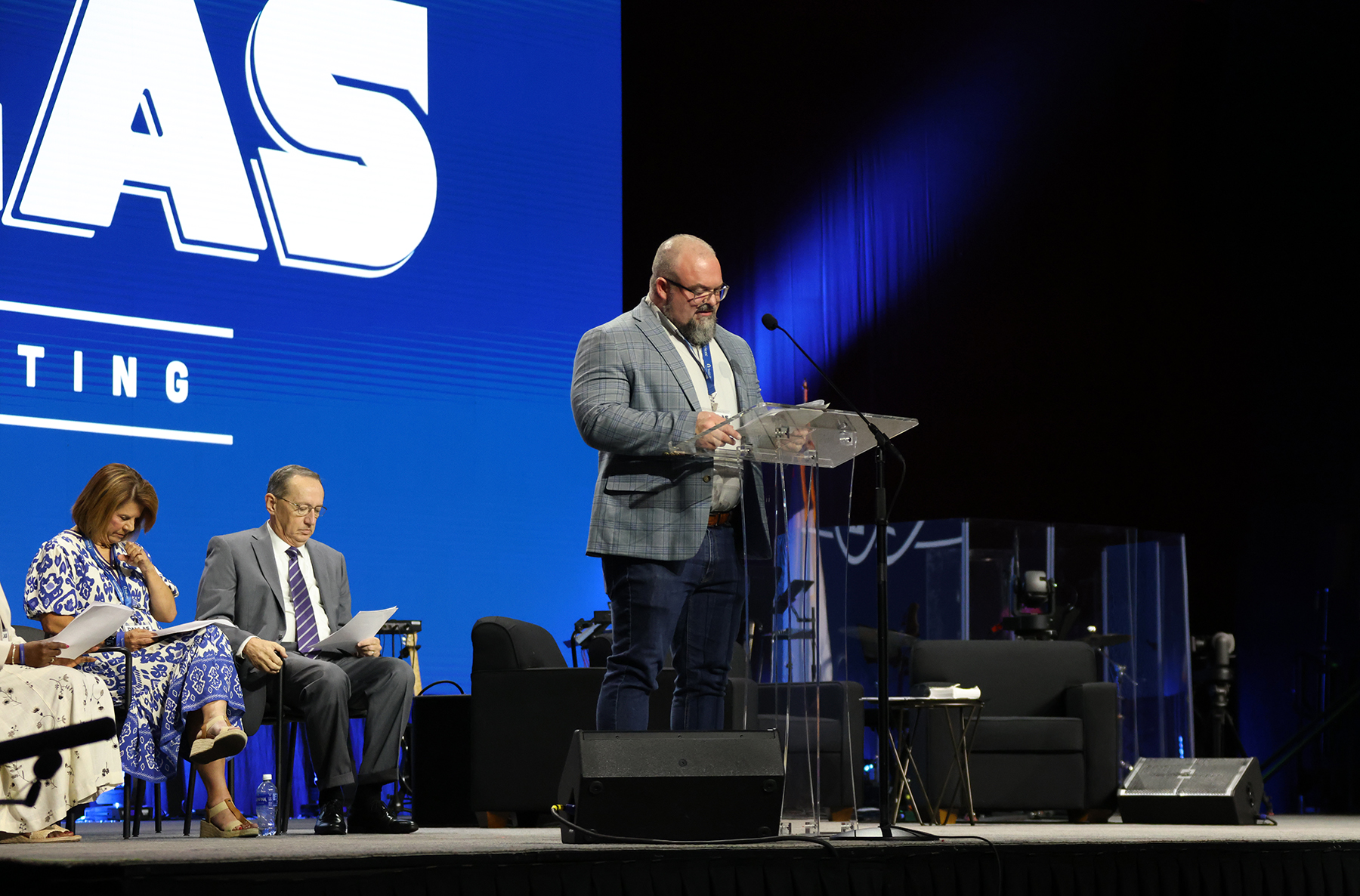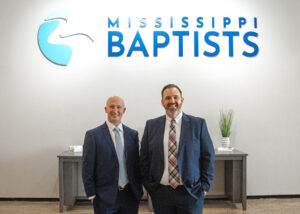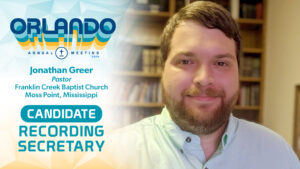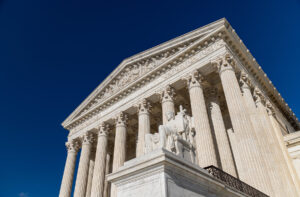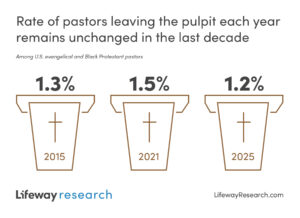By Ken Camp
Managing Editor, Baptist Standard
and local reports
DALLAS — Southern Baptist Convention annual meeting messengers approved a new business and financial plan for convention entities, rejecting an amendment that would have required a level of financial transparency comparable to IRS Form 990 disclosures.
Messengers approved a business and financial plan recommended by the SBC Executive Committee that emphasizes trustee governance of the convention’s institutions and agencies. Adam Wyatt, pastor, Bethel Church, Monticello, was elected Vice-Chairman of the SBC Executive Committee at the convention, and also served as chair of the Committee on Convention Finances and Stewardship Development.
‘Transparency builds trust’
Rhett Burns, pastor of First Church in Traveler’s Rest, S.C., introduced a motion to amend the proposed plan.
Burns’ amendment would have required Form 990-level financial disclosures—including the salaries of top executives—to the SBC-at-large within six months of the end of each fiscal year.
However, his amendment would not have required entities to file Form 990 with the IRS. It also included an exemption allowing an entity to withhold information that would endanger the lives or safety of international missionaries.
In addition to executive compensation, disclosures would have included amounts paid to attorneys, top contractors and information about any conflicts of interest.
“Trust is the foundation of our cooperation, and transparency builds that trust,” said Burns, a former IMB missionary.
While audits provide internal accountability, they do not provide external transparency to messengers and churches, he noted.
Send the wrong signal about federal oversight
Jeff Iorg, CEO of the SBC Executive Committee, spoke against the amendment, saying the convention “fought an extensive legal battle to establish that we have First Amendment protections from such invasive reporting as is required by the 990.”
“We stand today and assure you we are not trying to hide behind this ruling, but we are instead defending that ruling and upholding that ruling and wanting to stand within it,” Iorg said.
“Voluntarily offering that kind of information sends a signal that we find ourselves in some way subject to the federal government oversight, which none of us want to have.”
Iorg also said the level of reporting the amendment would require would release information the messengers lack the power to change and “set up legal conflicts.”
However, Burns and other messengers who favored the amendment noted Woman’s Missionary Union—an SBC auxiliary organization—routinely files an IRS Form 990, as do Baptist universities and other nonprofit organizations.
“The standard for our work should not lag behind sister Baptist institutions and certainly not lag behind secular nonprofits,” Burns said.
Warning against unintended consequences
John Piwetz from Crossroads Church in Elizabethtown, Ky., warned against unintended consequences.
“Transparency sounds like a good thing, but I’m sure all of you can think of countless times when discretion was preferable to transparency—when sharing additional information actually caused more problems, rather than solving them,” Piwetz said.
He pointed to actions taken in 2021, when convention messengers called on the SBC Executive Committee to waive attorney-client privilege as part of a move toward transparency related to the SBC sexual abuse investigation.
That action led legal counsel to resign, invalidated SBC insurance policies and opened the convention up to “massive legal monetary liabilities,” he said.
“Did we end up getting more information from the Executive Committee? Yes. But did we unintentionally cost ourselves millions of dollars in the process? Yes, we did that, too,” he said.
‘If we can do it, so can the SBC’
One messenger who spoke in favor of the amendment said information about the salaries of top executives is not provided to all trustees of all entities but only to those who serve on a board’s finance committee.
However, another messenger opposed to the amendment said that was not the case at the agency where he serves as a trustee.
Other messengers called on SBC entities to provide the same level of financial transparency as churches that provide detailed financial information to their members and as other nonprofit organizations provide.
Josh Abbotoy from Midway Church in Cookeville, Tenn., identified himself as a “Harvard-trained lawyer” who operates a small nonprofit organization.
“We prepare a 990. If we can do it, so can the SBC,” he said.

